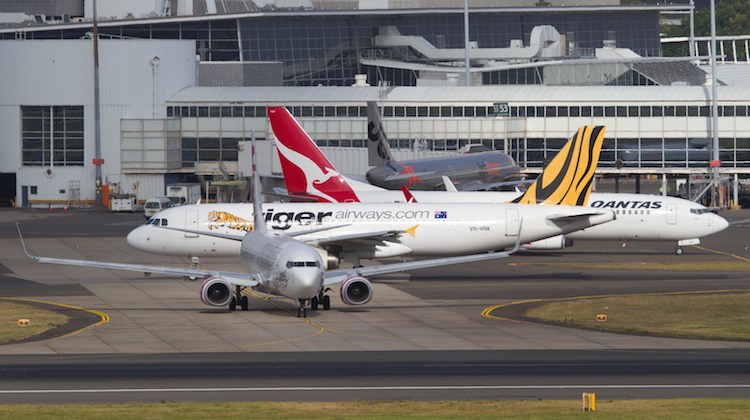
Domestic business class fares have risen in July, while the cheapest or best discount tickets have fallen slightly in the month, new figures show.
In a sign that perhaps company executives are getting back out on the road after the federal election, the Bureau of Infrastructure, Transport and Regional Economics (BITRE) monthly report on domestic ticket prices showed the index measuring business class airfares was at 95.4 points in July, compared with 90.1 points in the prior corresponding period.
The business class index has risen for the past 11 months on a year-on-year basis and in June touched its highest level in more than four years.
Similarly, the BITRE measure of air fares for restricted economy was also marginally higher at 79.6 points, up from 78.7 points in July 2015.
By contrast, the best discount economy index fell to 58.3 points, from 60.8 points a year ago. The best discount index has fallen in eight of the past nine months.
Australia’s two major airline groups Qantas and Virgin Australia have both made adjustments in the domestic market in recent times in response to soft demand, particularly among leisure travellers due to weak consumer confidence and the election.
In April, Qantas said it would put the brakes on capacity growth in the three months to June 30 2016, compared with the prior corresponding period, in response to the airline posting negative revenue per available seat kilometre (RASK – an industry measure of demand) in March and weaker-than-expected traffic over the Easter and school holiday period in most Australian states.
Indeed, Qantas’s latest traffic figures showed its Qantas/QantasLink domestic available seat kilometres (ASK) was down 5.1 per cent in May, compared with the prior corresponding period, while passenger numbers rose by 1.6 per cent. As a result, load factors were up 3.6 percentage points to 74.5 per cent.
Although Jetstar posted a 0.4 per cent fall in passengers carried in May, the 2.3 per cent reduction in ASKs helped lift load factors 1.2 percentage points to 81.2 per cent.
Meanwhile, Virgin has withdrawn Embraer E190 aircraft from its domestic operations as part of the eventual elimination of the type from the fleet, as well as between four and six ATR turboprops, over the next three years as part of efforts to bolster its balance sheet and improve operational efficiencies.
The BITRE air fare series was a price index of the lowest available fare in each fare class, weighted over selected routes.















